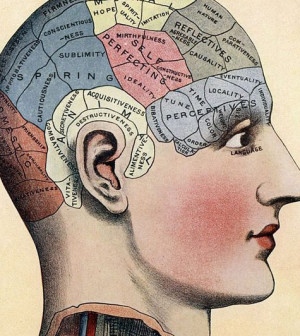- Could Your Grocery Store Meat Be Causing Recurring UTIs?
- Are You Making This Expensive Thermostat Error This Winter?
- Recognizing the Signs of Hypothyroidism
- 10 Strategies to Overcome Insomnia
- Could Artificial Sweeteners Be Aging the Brain Faster?
- Techniques for Soothing Your Nervous System
- Does the Water in Your House Smell Funny? Here’s Why
- Can a Daily Dose of Apple Cider Vinegar Actually Aid Weight Loss?
- 6 Health Beverages That Can Actually Spike Your Blood Sugar
- Treatment Options for Social Anxiety Disorder
Too Few Americans Undergo Dementia Screening


More than half of Americans with dementia have never undergone screening of their thinking and memory skills, a new study suggests.
As reported online Nov. 26 in Neurology, “approximately 1.8 million Americans over the age of 70 with dementia have never had an evaluation of their cognitive [mental] abilities,” study author Dr. Vikas Kotagal, of the University of Michigan Health System in Ann Arbor, said in a journal news release.
The finding is important because “early evaluation and identification of people with dementia may help them receive care earlier,” he said.
The new study included almost 300 people with dementia, aged 70 and older, who were taking part in the national Health and Retirement Study. According to the researchers, 55 percent had never had their thinking and memory abilities evaluated by a doctor.
With an early diagnosis of dementia, families can watch loved ones for problems, help them with day-to-day tasks, and make plans for care, Kotagal said. These types of interventions can greatly improve the quality of life for people with dementia, he added.
The study also found that married people were twice as likely to have undergone dementia screening compared to single people.
“It’s possible that spouses feel more comfortable than children raising concerns with their spouse or a health care provider,” Kotagal said. “Another possibility could be that unmarried elderly people may be more reluctant to share their concerns with their doctor if they are worried about the impact it could have on their independence.”
The study also found that people with more severe thinking and memory problems were more likely to have been evaluated by a doctor than those with less severe signs of dementia.
Factors such as race, socioeconomic status, number of children, and whether children lived close to their parents did not affect whether or not people with dementia had been checked for memory and thinking problems, the study authors noted.
One expert agreed that more must be done to boost dementia screening rates.
“Dementia affects one in eight persons over the age of 65 in the United States and one in three persons over the age of 80,” said Dr. Gayatri Devi, a neurologist at Lenox Hill Hospital in New York City.
“Despite this, there are no established guidelines for screening procedures,” Devi said. “As a result, many adults with dementia do not get diagnosed and are not given access to available treatments,” she explained.
“Early diagnosis and treatment are crucial for maintaining quality of life in this debilitating condition,” Devi said. “There are economic benefits to society as well.”
More information
The American Academy of Family Physicians has more about dementia.
Source: HealthDay
Copyright © 2026 HealthDay. All rights reserved.










